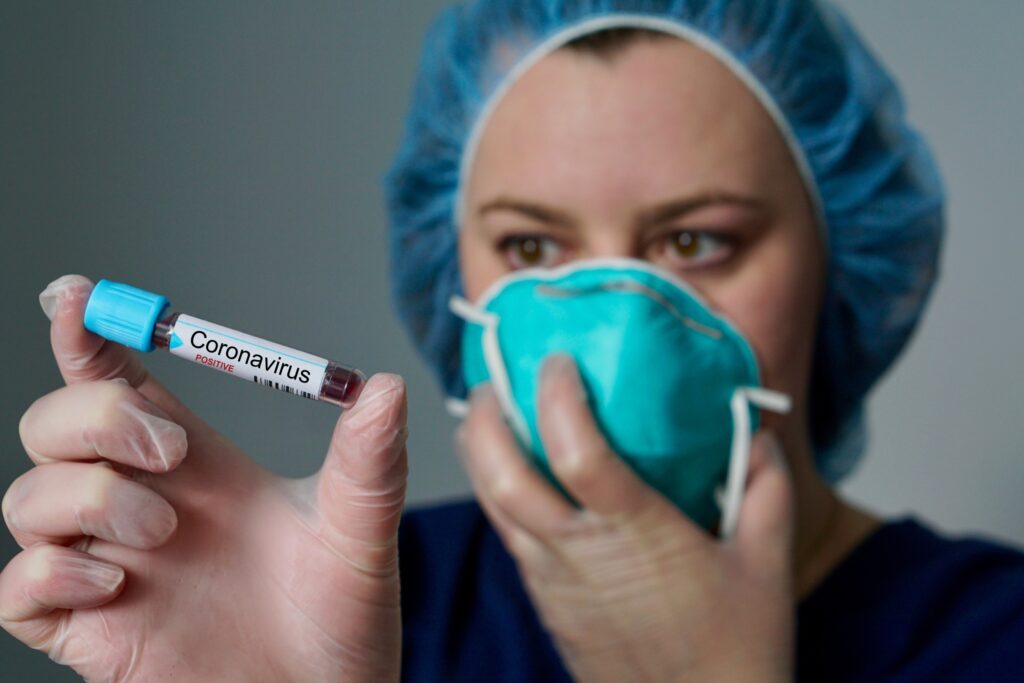Is it Acceptable to Reward Reviews for Cosmetic Surgery? Legal Risks Lurking in Site Operation

Beauty review websites often receive numerous reviews and feedback from patients who have undergone cosmetic surgery. Recently, the number of such review sites has been increasing. However, some of these sites may receive compensation from medical institutions in return for posting reviews.
So, does the act of a review site receiving compensation from a medical institution in exchange for posting reviews violate any laws? Let’s discuss this individually.
Problem Identification
When using review sites, many reviews are posted, including impressions of treatment content and comparison images before and after treatment. In the operation of beauty-related review sites, there are cases where patients are paid for reviews and photos, and rewards are obtained from medical institutions, and the legal risk of such actions is a problem. The related regulations are as follows.
Medical Advertising Guidelines Article 3 “About Prohibited Advertisements”
There are Medical Advertising Guidelines as standards to be followed when medical institutions post advertisements. The Medical Advertising Guidelines can be said to be a concrete expression of the content of the regulations of the Medical Practitioners’ Law (Japanese Medical Practitioners’ Law).
The Medical Advertising Guidelines state, “Advertisements of testimonials about the content or effects of treatment based on the subjectivity or hearsay of patients, and advertisements of photos before and after treatment that may mislead patients about the content or effects of treatment are prohibited.”
Whether the reviews and pre- and post-operative photos posted on review sites violate the guidelines is explained in detail here, so please read it.
https://monolith.law/corporate/cosmetic-surgery-image-point[ja]
Medical Practitioners’ Law Article 54 “Prohibition of Surplus Dividend Distribution”

Medical corporations are personalityized by a narrower range of permissible activities compared to ordinary companies. Activities that would naturally be permitted in a company, such as the pursuit of profit and the distribution of surplus funds, are not permitted under Article 54 of the Medical Practitioners’ Law.
Article 54 Medical corporations shall not distribute surplus funds.
http://www.jscm.org/m-info/07_iryouhou.pdf[ja]
Not all profit-making activities are prohibited, but there are regulations as follows. The point is whether it is within the socially acceptable range.
① It is an act that is repeatedly and continuously performed for the purpose of earning profits under a certain plan, and is of a degree that can be recognized as a business in social common sense.
② It is not something that may damage the social credibility of the medical corporation (note).
③ The management is not speculative.
④ There is no risk of hindering the smooth performance of the business of the hospital, clinic or nursing care facility for the elderly established by the medical corporation due to the performance of the business.
⑤ It is not managed by lending the name to someone other than the medical corporation or by other unfair methods.
https://www.mhlw.go.jp/topics/bukyoku/isei/igyou/igyoukeiei/gyoumu.pdf[ja]
(Note) “Things that may damage social credibility” refers to businesses such as sex businesses, weapons manufacturing, and gaming places.
There is no explicit rule to prohibit specific transactions as profit-seeking. However, in administrative operation, transactions that can be regarded as profit-seeking and surplus dividend distribution are subject to guidance.
For example, in the case of performance-linked transactions (actions where remuneration is determined according to the company’s profits), it is subject to guidance, but fines and other penalties are not immediately imposed. On the other hand, in the case of continuous transactions that receive payments according to the profits of medical institutions, there is a high possibility of being problematic.
From this, it is stipulated that certain medical institutions must report transactions with related business operators.
Target Medical Institutions
① Medical corporations with a total amount of liabilities recorded in the balance sheet for the final fiscal year of 50 billion yen or more or a total amount of business income recorded in the income statement for the final fiscal year of 70 billion yen or more
https://www.mhlw.go.jp/content/000459150.pdf[ja]
② Social medical corporations with a total amount of liabilities recorded in the balance sheet for the final fiscal year of 20 billion yen or more or a total amount of business income recorded in the income statement for the final fiscal year of 10 billion yen or more
③ Social medical corporations that are social medical corporation bond issuing corporations
(The amounts that serve as the criteria for the above ① and ② can be judged by the balance sheet or income statement reported to the prefectural governor.)
If the above applies, you need to report profits using the specified balance sheet and income statement format.
Even if the above does not apply, if traces of payments to review sites corresponding to profits are found during health center inspections, book checks, or individual guidance, there is a possibility of some kind of pursuit.
In other words, the act of paying rewards as consideration for reviews on beauty-related review sites is an act that has a sufficient possibility of conflicting with the Medical Practitioners’ Law, and it is necessary to recognize this from the side of the medical institution.
If we summarize the content so far, it is as follows.
- The photos and reviews of beauty-related review sites are likely to conflict with the Medical Advertising Guidelines
- The act of having a hospital write a review in return for a reward may also fall under the “profit-making activity” prohibited by the Medical Practitioners’ Law
Comparison of Medical-Related Websites
Let’s compare various medical-related websites. Currently, there are several websites in the medical field that operate by receiving compensation from medical institutions under the guise of system usage fees and the like. These include:
- “Dentry” (https://dentry.jp/[ja])
- “EPARK Clinic & Hospital” (https://fdoc.jp/[ja])
- “EPARK Dentistry” (https://haisha-yoyaku.jp/[ja])
- “Reservation Premium” (https://www.nhosa.com/product/yoyaku/[ja])
- “Dental Reservation & Schedule Management System PROGRAMα” (http://www.media-inc.co.jp/product/pga/[ja])
- “Genie” (https://genie-dc.com/[ja])
- “Medimo” (http://メディモ.com/[ja])
* “Medimo” is a review site, while the others are reservation management sites.
Among these, “Dentry” has different system usage fees depending on the plan used. For “EPARK Clinic & Hospital”, “EPARK Dentistry”, and the other sites mentioned above, the compensation is not publicly disclosed on their websites, but it appears to be linked to the number of reservations made.
Although the latter case may seem like a performance-based system, the nature of the compensation is the price for the proxy service of “reservation acceptance”. By basing it on the number of tasks, not revenue (fees), it is believed that they are ensuring legality. Regardless of the hospital’s revenue, the more reservations made through the site, the more compensation received, and conversely, if the number of reservations is low, the compensation decreases proportionally. With such a system, the relationship with the hospital’s revenue becomes less relevant, and it seems unlikely to be considered performance-based.
Is it illegal to receive compensation from medical institutions in exchange for reviews?

Looking at the example of the medical institution site above, in the case of review sites, if the contract stipulates that the amount of compensation changes according to the number of patients who say, for example, “I made a reservation after seeing the reviews on the site”, the nature of the compensation may be considered as a fee for a specific task of posting reviews on the site, and it may avoid being evaluated as performance-based. However, in that case, the task becomes posting reviews commissioned by the medical institution, and you will face the problem mentioned above that the reviews may be considered as advertisements under the Japanese Medical Advertising Guidelines.
The definition of advertising under the Japanese Medical Advertising Guidelines is as follows:
- There is an intention to induce patient visits, etc. (inducement)
- The name of the person providing medical or dental services or the name of the hospital or clinic can be identified (specificity)
If the medical institution specifies the content of the work, it is likely to meet the above conditions and be considered as advertising. As I explained, if it is considered as advertising under the Japanese Medical Advertising Guidelines, the request to post reviews, etc. with monetary payment is against the prohibited items, and there is a high risk of violating the guidelines.
In other words, both the performance-based and the case where the compensation is changed by the contract content, the legal risk can be said to be high.
Considering these circumstances, it would be a good idea to make an anonymous inquiry to the public health center or similar institutions once to check whether it is problematic. Even if you are using a review site as an intermediary, it is essentially no different from the medical institution paying the reviewer compensation in exchange for the post. Considering that Article 54 of the Japanese Medical Practitioners Act prohibits medical institutions from making profits other than their original business, except in limited cases, it is a fact that it is a quite gray act. If you want to avoid the risk of continuing to operate the site, it would be a sure choice to consult with the appropriate institution in advance.
Summary
We have examined the legal risks associated with receiving compensation from medical institutions in exchange for reviews on beauty-related review sites.
The first point of contention is whether the reviews and photos violate the prohibitions in the Japanese Medical Advertising Guidelines. Additionally, from the hospital’s perspective, the act of paying compensation in exchange for reviews may potentially fall under the actions regulated by the Japanese Medical Practitioners Act.
Whether you have a performance-based compensation system is a crucial point, but it is a very difficult case to judge. Instead of making a decision on your own, we recommend consulting with a lawyer who has extensive expertise in advance.
Category: Internet





















